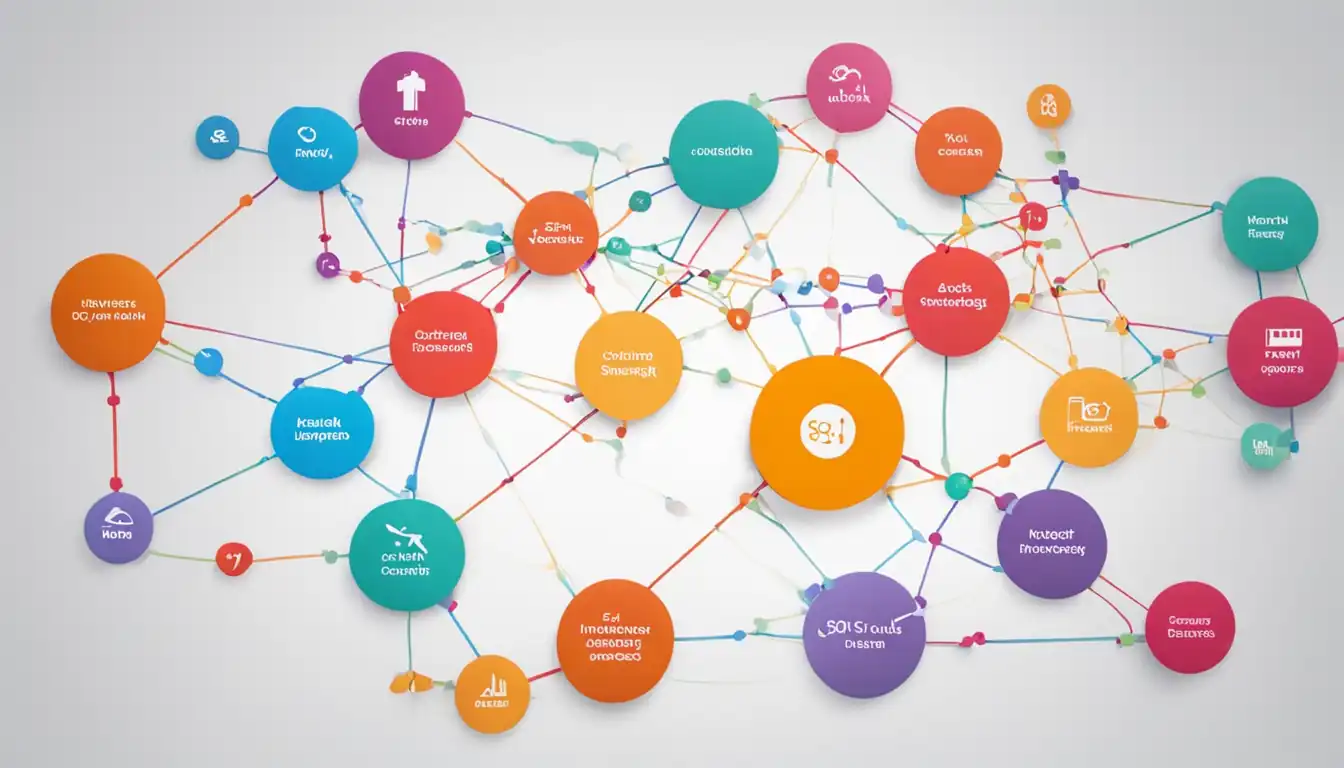Unraveling the Power of Content Topic Clusters for SEO

In the vast landscape of SEO, content topic clusters have emerged as a powerful tool for boosting your website's visibility and relevance. But what exactly are these clusters, and how can they revolutionize your content strategy? Let's dive into the world of content topic clusters and unravel their potential to supercharge your SEO efforts.
What Are Content Topic Clusters
Understanding the Basics
Content topic clusters are a strategic approach to organizing and linking related content on a website. This method involves creating a pillar page that serves as the main hub for a broad topic, with cluster content supporting and linking back to the pillar page. By grouping related content together, search engines can better understand the context and relevance of each piece of content.
The Role in SEO
Content topic clusters play a crucial role in SEO by helping to improve a website's organic search visibility and rankings. When implemented effectively, content topic clusters can signal to search engines that a website is an authority on a particular subject, leading to higher rankings for relevant keywords. Additionally, by interlinking related content within a cluster, websites can improve user engagement and encourage visitors to explore more of their content.
Planning Your Topic Cluster Strategy
Identifying Core Topics
When planning your topic cluster strategy, the first step is to identify core topics that are relevant to your business or industry. These core topics should be broad subjects that encompass a range of subtopics and keywords.
Key Points:
- Core topics should be foundational to your business or industry.
- Choose topics that are relevant and valuable to your target audience.
- Conduct keyword research to identify high-volume search terms related to your core topics.
Mapping Out Related Subtopics
Once you have identified your core topics, the next step is to map out related subtopics that can be grouped under each core topic. These subtopics should be more specific than the core topic and provide in-depth information on a particular aspect of the subject.
Key Points:
- Subtopics should be closely related to the core topic.
- Create a content hierarchy with the core topic at the center and subtopics branching out from it.
- Use tools like Google Keyword Planner or SEMrush to find relevant subtopics and keywords for each core topic.
By following these steps and creating a comprehensive topic cluster strategy, you can improve your website's SEO performance and provide valuable content for your audience.
Creating Content That Connects

In the world of SEO, creating content that connects with your audience is crucial for driving traffic to your website. Content topic clusters are a powerful tool that can help you achieve this goal by organizing related content around a central topic.
Writing with Intent
When creating content topic clusters, it's important to write with intent. This means that each piece of content should be created with a specific purpose in mind and should be optimized for relevant keywords. By focusing on a specific topic and providing valuable information to your audience, you can increase your chances of ranking higher in search engine results.
Ensuring Quality and Relevance
In addition to writing with intent, it's also important to ensure that your content is of high quality and relevance to your target audience. This means conducting thorough research on the topic, using reliable sources, and providing unique insights or perspectives. By creating content that is both informative and engaging, you can attract more visitors to your website and keep them coming back for more.
Implementing Topic Clusters on Your Website
In the world of SEO, content topic clusters have emerged as a powerful strategy to boost your website's visibility and authority. By organizing your content around central pillar topics and related subtopics, you can create a web of interconnected pages that signal to search engines the depth and breadth of your expertise in a particular subject area.
Structuring URLs and Links
When implementing topic clusters on your website, it's essential to pay attention to how you structure your URLs and internal links. Each piece of content within a cluster should be logically connected through a hierarchical linking structure. For example, the pillar page should serve as the main hub for the cluster, with subtopic pages linking back to it using relevant anchor text.
Using Anchor Text Effectively
Anchor text plays a crucial role in signaling the relationship between different pieces of content within a topic cluster. When creating internal links, use descriptive anchor text that clearly indicates what the linked page is about. This not only helps search engines understand the context of the link but also provides valuable information to users about what they can expect when they click through.
By structuring URLs and links thoughtfully and using anchor text effectively, you can maximize the impact of your content topic clusters on SEO. These strategies not only help search engines better understand and index your content but also provide a seamless user experience that encourages visitors to explore more of your site's valuable resources.
Measuring the Impact of Topic Clusters

Content topic clusters have become a popular strategy in SEO due to their ability to boost website visibility and authority. However, it is essential to measure the impact of these clusters to ensure that they are delivering the desired results.
Tools for Tracking Success
Tracking the success of content topic clusters can be done using various tools that provide valuable insights into performance metrics. Some popular tools for tracking the impact of topic clusters include:
Google Analytics: This tool allows you to track website traffic, user behavior, and conversions related to your content topic clusters.
SEMrush: SEMrush provides detailed data on keyword rankings, backlinks, and organic traffic, which can help you assess the effectiveness of your topic clusters.
Ahrefs: Ahrefs offers comprehensive SEO analysis, including competitor research and content performance tracking, making it a valuable tool for measuring the impact of your topic clusters.
HubSpot: HubSpot's analytics dashboard provides insights into content engagement metrics, lead generation, and conversion rates associated with your topic clusters.
By utilizing these tools, you can track key performance indicators (KPIs) such as organic traffic growth, keyword rankings, backlink acquisition, and user engagement to evaluate the success of your content topic clusters.
Analyzing and Interpreting Data
Once you have gathered data on the performance of your content topic clusters using tracking tools, it is crucial to analyze and interpret this data effectively. Here are some steps to follow when analyzing and interpreting data:
Identify Trends: Look for patterns or trends in your data that indicate whether your topic clusters are driving positive results.
Compare Metrics: Compare different metrics such as organic traffic growth, keyword rankings, and user engagement before and after implementing content topic clusters.
Adjust Strategies: Based on your analysis, make adjustments to your content strategy by optimizing underperforming topics or expanding successful ones.
Monitor Progress: Continuously monitor the performance of your content topic clusters over time to ensure sustained success in SEO efforts.
By effectively measuring the impact of content topic clusters through tracking tools and thorough analysis of data, you can optimize your SEO strategy for improved visibility and authority in search engine results pages (SERPs).
Conclusion
Incorporating content topic clusters into your SEO strategy can be a game-changer in driving organic traffic and improving your search engine rankings. By understanding the basics, planning strategically, creating high-quality content, implementing effectively on your website, and measuring impact through data analysis, you can unlock the full potential of content topic clusters for SEO success. So why wait? Start harnessing the power of content topic clusters today and watch your online presence soar to new heights.